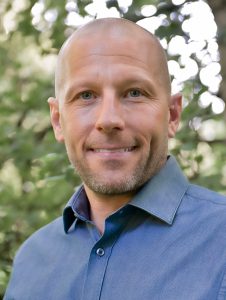Every year as we move into the summer blockbuster movie season there never seems to be a lack of cinematic representations of impulsive vengeance. From rampaging superheroes to lone cops on the loose our popular culture is permeated with vengeance narratives. While it may feel “good” to watch on the big screen or to view on 24-hour cable news networks, I have found in my extensive work as an individual, family, and couples’ counselor that vengeance never works as a way out of relational discord nor, indeed, as way to better physical, mental, and spiritual health.
I have repeatedly found the antidote to vengeance in therapy, whether with couples or individuals, is one’s ability to forgive. I am happy to say that through the ground- breaking work of Stanford professor and counseling psychologist, Dr. Frederic Luskin, the research is on my side. Dr. Luskin has studied the power of forgiveness in numerous contexts from tracing its impact on psychosocial factors impacting college age students to more complex histories of violence such as the Catholic-Protestant upheaval in Ireland and in the ethnic strife found in the West African nation of Sierra Leone.
Time and again, Dr. Luskin and other researchers who have built on his work have found that forgiveness based education, as well as counseling and therapy programs result in improved lives for participants. These include an increased sense of well-being, decreased occurrence of such physical issues as heart disease, increased levels of gratitude, and more kind-hearted attitudes toward the perceived offender. In other words, there is a direct correlation between practicing forgiveness and improving one’s mental, physical, and spiritual health.
Imagine, for example, a man and a wife previously on the edge of divorce taking assertive control of their reactivity, learning to forgive each other, embracing, and creatively reviving their love. I have seen it. It can be achieved.
Dr. Luskin asserts that we can be at peace. Forgiveness has two central aspects to it. Firstly, it is the experience of being at peace in the here and now no matter what strife, challenges, or conflicts that have happened in our lives. I believe that families, couples, and individuals that seek effective counseling can assertively create peace well into the future through forgiving in the present.
Secondly, Dr. Luskin notes that we create the lack of peace we feel in our lives. Maybe we feel wronged by how a parent treated us when we were young, maybe we are angry with our spouse or partner. To paraphrase Dr. Luskin, life happened and we objected to it. This objection we experience now causes us emotional, physical, and spiritual upheaval.
In this sense, forgiving is not about the party we think wronged us. It is about taking care of ourselves. When we come to terms with our reaction to being wronged we take control of our lives. Dr. Luskin has written numerous books including Forgive For Good (of which he also produced a corresponding PBS program), Forgive For Love, and Stress Free For Good. On his website, Learning to Forgive, readers can find Dr. Luskin’s “nine steps to forgiveness.” I highly recommend applying these steps in your life.
As a marriage family therapist I feel a great level of passion in sharing Dr. Luskin’s research and tips for actively using forgiveness in our lives for our own good, for our marriages, for our relationships with others, and for the good of our communities. As a counter to the summer blockbuster impulse toward revenge in our culture and our relationships I think step eight of Dr. Luskin’s nine step process is poignant and timely. It captures the power of forgiveness:
“Remember that a life well lived is your best revenge. Instead of focusing on your wounded feelings, and thereby giving the person who caused you pain power over you, learn to look for the love, beauty and kindness around you. Forgiveness is about personal power.” Dr. Fred Luskin.
Andrew Groeschel is a licensed marriage family therapist at Austin Family Counseling where he helps couples, families, and individuals learn to forgive, move toward compassion and appreciation, and more fully grow into their life’s calling.
Resources:
Forgive For Good. Luskin, Fred. San Francisco: HarperSanFrancisco. 2002.
“What is Forgiveness?” Luskin, Fred. https://www.youtube.com/watch?v=66Yxs1C_iQo
Sierra Leone Forgiveness Project, http://learningtoforgive.com/wp/docs/Sierra_Leone_Forgiveness_Project.pdf












